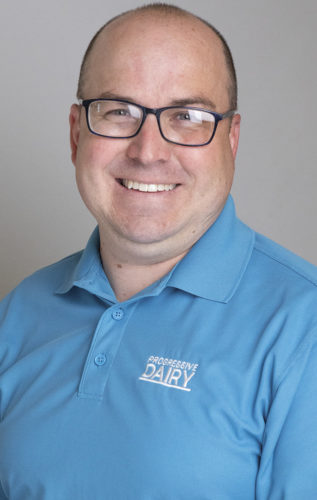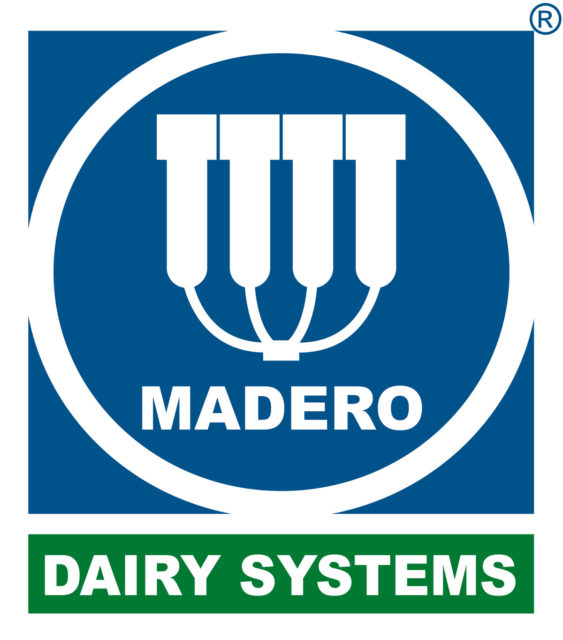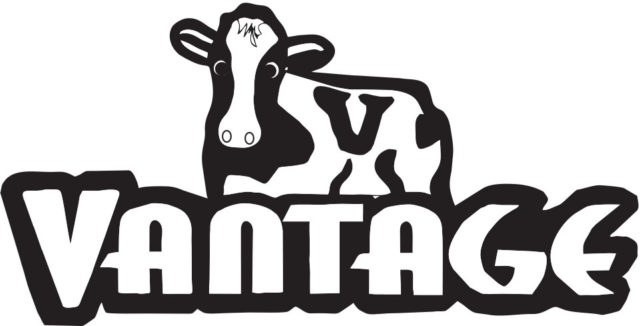For more than a decade, Ray Bohacz has been tailoring his mechanical experience as an automobile engineer to help farmers with their own equipment.
He operates a podcast and website dedicated to explaining how machinery works and how to diagnose it. Progressive Dairy Editor Walt Cooley recently interviewed him for Progressive Dairy’s podcast to learn more about his background and to introduce him to readers. Bohacz’s machinery columns will begin to appear in Progressive Dairy in the Equipment Hub section of the magazine. See a sample of his content. Read, Test your farm manchinery knowledge with this toolbox test.
Why do people call you the Hot Rod Farmer?
BOHACZ: They call me the Hot Rod Farmer because I’m a recovering drag racer. I’ve always been an engine guy since I was a little kid. I loved cars and got involved with drag racing. I put myself through college working on our family farm and building drag race motors.
Explain the name behind your podcast – ‘Idle Chatter’
BOHACZ: The reason why I call it “Idle Chatter” is because it’s a play on words. The sound of a diesel engine idling in engineering is called clatter. My podcast tries to be a casual way of introducing technical subjects to farmers – like having a conversation over a tailgate, at a workbench or while having a cup of coffee.
What do you love most about farm machinery?
BOHACZ: Everything. I’ve always loved anything that was mechanical – machinery, engines, cars.
I was very awkward as a boy because I’m near-sighted in one eye and far-sighted in the other. Thus, I was never involved with sports. I was the kid that the teacher had to assign to someone’s team during recess in elementary school. But God made me very interested in mechanical things. And I love agriculture, and I’m passionate about agriculture and farming.
Although you have a farming background, you’d been working mostly with cars and not farm machinery up until 2008. What changed?
BOHACZ: My educational background is in mechanical engineering. I’ve worked in a shop where we built racing engines, and even before that I was a contract engineer for BMW North America in the automobile industry.
Before I started farmmachinerydigest.com, I had probably published about 3,500 articles for 14 or 15 different car magazine titles and wrote three technical books for the automobile industry. And I did a lot of training seminars. That kind of work evaporated almost overnight during the Great Recession of 2008.
I’ve continued to be involved with the family farm in New Jersey here. We are sweet corn growers. Since I was so involved with agriculture, and I am passionate about it, I decided to start writing about farm machinery instead.
Explain your theory on the three-legged profitability stool for dairy farmer success – agronomy/animal husbandry, marketing and machinery.
BOHACZ: Most farmers, at least here on the East Coast and in the Northeast where I’m located, grow their own crops. They have to know how to work with cows and make hundredweights of milk from forages. They also need to know how to market their commodity properly and have a good business plan. But the third leg of that profitability stool, in my opinion, is understanding how to work with your machinery. Agriculture runs on machinery. And a farmer’s profits are dependent upon the reliability of that machinery.
You could have the greatest milk prices, the greatest marketing plan, the greatest genetics, the highest milk production volume, but if you have a lot of problems with equipment and machinery, at the end of the year you’ll have a loss on your balance sheet.
I really think that the ag industry looks at machinery problems, failures or delays as just bad luck. But as a mechanical engineer, I can say that most of the time, it’s not bad luck.
What’s different between farmers and automobile engineers when it comes to machinery?
BOHACZ: I have found that, for the most part, most farmers are excellent at being mechanically inclined.
They do a good job of following instructions: Solder this. Bolt this on. Take this off. Change this tire, etc. They are good at the hands-on mechanical part of it. But they are usually very poor about understanding how the mechanical system works and how to diagnose its problems. That’s really what I emphasize on my podcast and in my articles. Because if you misdiagnose something, you’re wasting your time and money.
For example, let’s say you determine one day that your hydraulic pump is bad and change it. A farmer is usually excellent at replacing the pump. But if one doesn’t understand cavitation and what destroyed that pump in the first place, you’re going to install a new pump at cost of $100 or $3,000 or pick a number. And you may be wasting your money because you don’t understand what the root of the problem is. Perhaps you didn’t know you should take that old pump apart to see if there’s metal missing inside. That would help you know why the pump failed in the first place.
I’m not trying to make someone an engineer, but I am trying to give them enough background to do better diagnostics.
Describe the most frequent question you get from farmers
BOHACZ: Oils and fuel are always the biggest topic. A lot of farmers don’t recognize the fact that you need to add additives to all the diesel fuel used in all your equipment – whether it’s a pickup truck or a combine or a tractor. That’s because the fuel that you’re buying, even if it’s branded as a premium fuel, is usually not. Electrical issues would be a close second.
What are a couple of things you’re big on promoting that would prevent a lot of machinery issues?
BOHACZ: There’s actually three things that I would recommend. The number one is to implement a very inexpensive fluid-testing program on your farm. Fluid testing is a great predictor of what is happening with your machinery. I recommend farmers test their coolant, engine oil and hydraulic fluid at least once a year, possibly twice a year. It’s a good predictor of what is happening with your machinery. And then you need to keep those test records on file.
Second, and people often laugh at me for suggesting this, when you’re done running a piece of equipment, let it idle for 30 seconds to a minute before turning it off. Then open the hood after you turn it off. In engineering, we call that a thermal excursion. Because the cooling system is no longer functioning, a thermal excursion deteriorates everything underneath the hood. It’s probably the biggest killer of things underneath the hood.
I tell people: Put a note inside the cab to remind yourself to open the hood and let that heat out. That’s something that will pay dividends over time.
The third preventive maintenance thing that I would recommend is properly additizing your fuel with a product that has at least five to seven modes of action. You want something with cetane booster, anti-gel, lubricity, fuel stabilizer, injector cleaner, water dispersant and sludge remover.
Those three things are the three biggest things you could do with minimal investment that will be the most effective at making machinery reliable.
Maybe you won’t answer this question, but I have to ask: Do you have a favorite tractor color?
BOHACZ: I farm with blue. In addition to that, I will say I am “Mr. Buy American.” I look to see if something is American-made or American-assembled. But I think all the colors all great. Also, I’m a bit of an animal lover, so any animal that comes to the farm, I adopt it. It’s the same for tractors. Because I’m an engine guy, I’m going to find some reason to love it regardless of the color of its paint.






